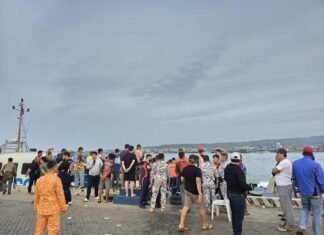In recent political developments within Turkey, President Recep Tayyip Erdogan has faced significant criticism from the opposition leader following the detention of Istanbul’s mayor, Ekrem Imamoglu. This incident has sparked outrage and raised concerns about the state of democracy and political freedom in the country.
Ekrem Imamoglu, a member of the Republican People’s Party (CHP), has been a prominent figure in Turkish politics since he won the mayoral election in Istanbul in 2019. His victory was seen as a major blow to Erdogan and his ruling Justice and Development Party (AKP), as Istanbul has historically been a stronghold for the AKP. Imamoglu’s leadership has been characterized by efforts to address various urban issues and enhance local governance, earning him substantial public support.
The recent detention of Imamoglu has been interpreted as part of a broader strategy by Erdogan’s government to consolidate power and suppress dissent. The opposition leader, Kemal Kilicdaroglu, has been vocal in his condemnation of the government’s actions, describing them as an affront to democracy and an attempt to intimidate political rivals. Kilicdaroglu accused Erdogan of eroding the democratic institutions of Turkey and called on people to stand against what he termed authoritarian rule.
Imamoglu’s arrest follows a series of legal challenges he has faced since taking office, including allegations of misconduct and defamation. Critics argue that these charges are politically motivated, aimed at undermining his credibility and weakening the opposition’s influence in the lead-up to the next general elections. The situation has prompted widespread protests across Istanbul, with citizens rallying in support of their mayor and demanding his release.
The political climate in Turkey is increasingly polarized, with Erdogan’s supporters lauding his government’s economic and infrastructural initiatives while detractors criticize the erosion of civil liberties and political freedoms. Turkey has witnessed a significant crackdown on independent media, political dissent, and civil society organizations in recent years, raising concerns among human rights advocates.
The opposition has been mobilizing and attempting to unify various factions against Erdogan’s rule. The detention of Imamoglu can be viewed as a rallying point for the opposition, as it galvanizes support from disillusioned voters who are eager for change. The CHP and other opposition parties have been striving to present a cohesive alternative to Erdogan’s governance, emphasizing the importance of restoring democratic norms and promoting a more inclusive political environment.
As the situation unfolds, many are watching closely to see how the government will respond to the growing unrest and calls for reform. The implications of this political struggle extend beyond Istanbul; they could potentially reshape the future of Turkish politics, influencing the dynamics leading up to the next elections.
In a global context, Turkey’s political trajectory remains a point of interest for policymakers and international observers. The interplay between authoritarian governance and democratic aspirations in Turkey continues to evoke discussions about the balance of power and the importance of upholding democratic institutions. The unfolding events surrounding Imamoglu’s detention could serve to either strengthen or weaken Erdogan’s grip on power, depending on how the public and opposition parties mobilize in response.
In summary, the political landscape in Turkey is at a critical juncture, characterized by tension between the ruling party and the opposition. The arrest of a popular mayor has ignited a broader conversation about democracy and governance in the nation, highlighting the struggles that citizens face in their pursuit of political rights and freedoms. The coming weeks and months will be essential in determining the future of Turkish democracy.





